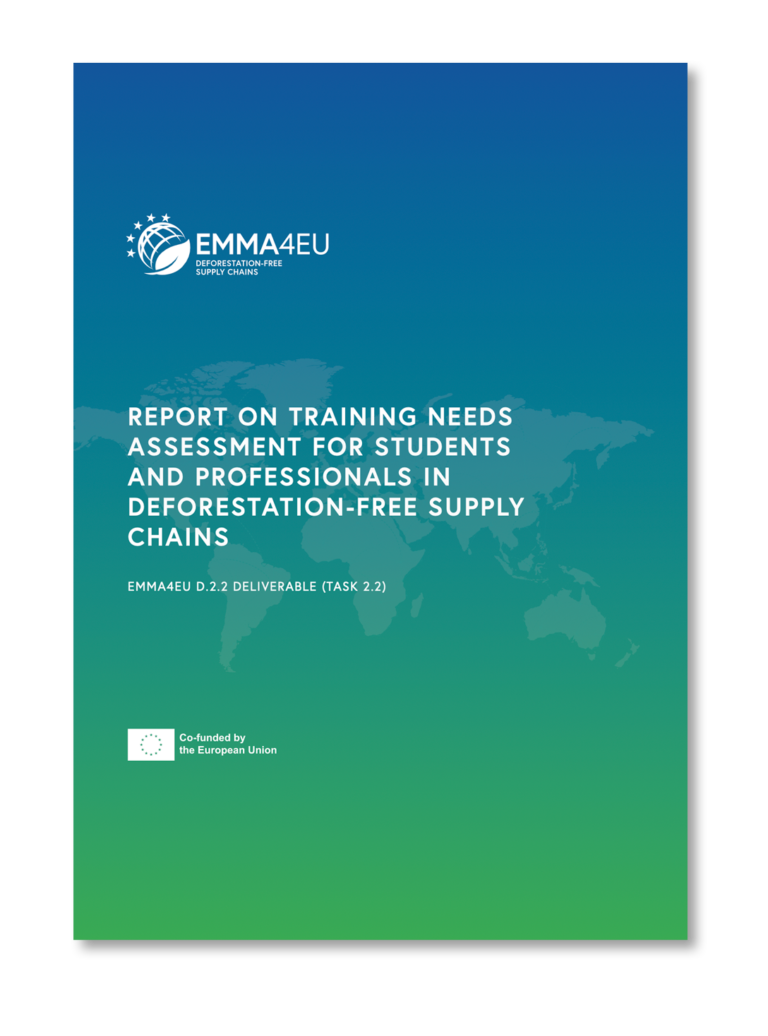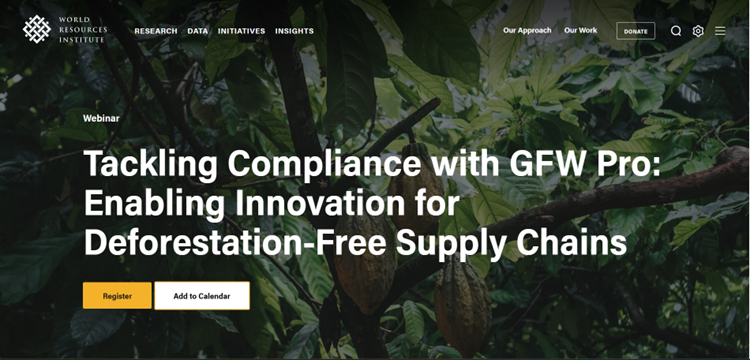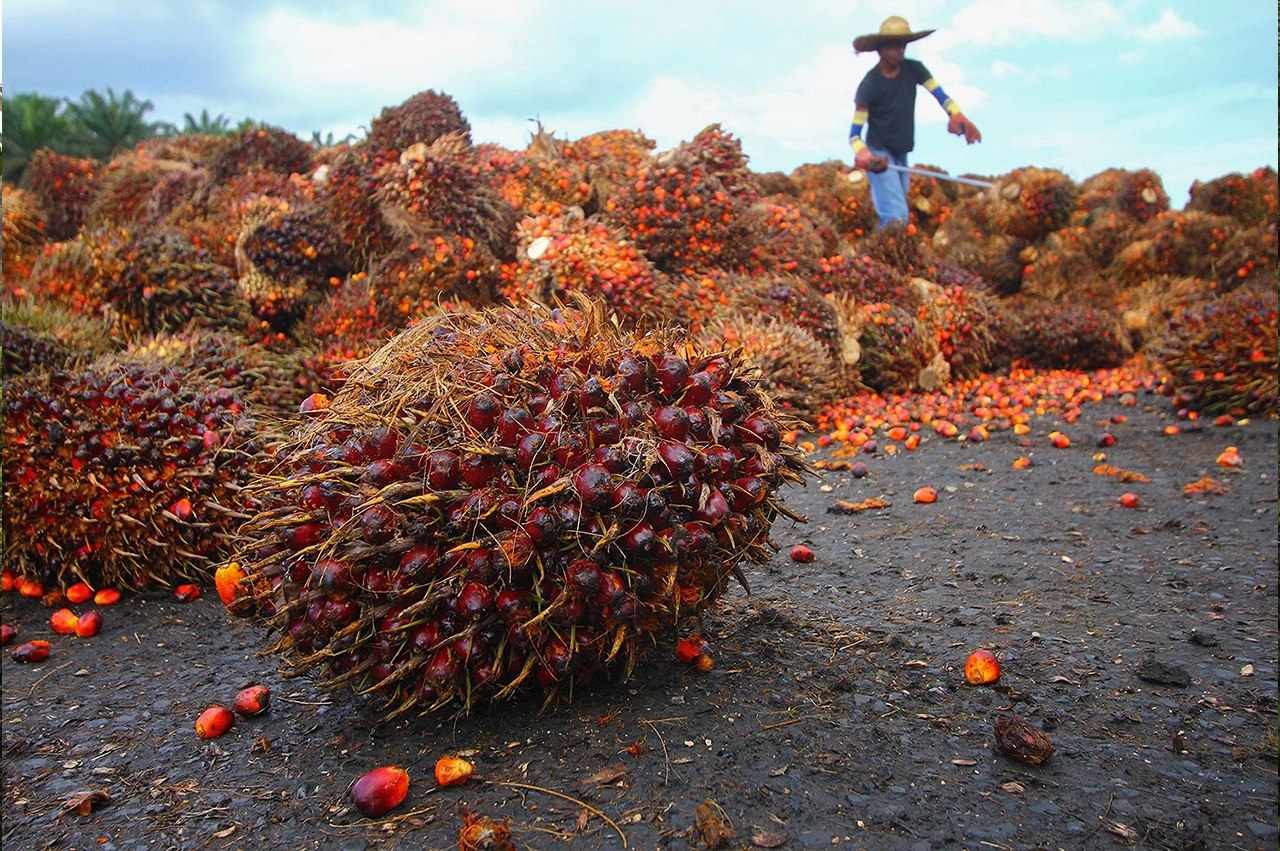This report, produced by the University of Padova (EMMA4EU partner), presents the results of an online survey that identified knowledge, skills, and competence gaps among students and professionals involved in reducing deforestation risk in commodity supply chains and implementing the EU Deforestation-Free Products Regulation (EUDR).
Do you want to understand the skills and knowledge gaps that professionals and students face in this critical field? The Training Needs Assessment (TNA) Report presents the findings from an extensive online survey that gathered insights from a diverse group of students and professionals of 36 different nationalities and currently based in 25 different countries either for study or employment reasons. The report aims to identify the training needs necessary to reduce deforestation risks in commodity supply chains and support the implementation of the EU Deforestation-Free Products Regulation (EUDR). Here’s a summary of the key findings and why this report is crucial for anyone looking to make an impact in this field. Download the full document to find out more!
The project
The EMMA4EU project, co-funded by the European Commission’s Erasmus+ Programme, aims to promote the implementation of the EUDR through innovative training and knowledge exchange.
Education plays a crucial role in this initiative. The project team is already developing a training programme that will include e-learning and in presence learning opportunities for both students and professionals. But in order to set up the course in the best possible way, it was essential to collect reliable and up-to-date data on the subject, and from this came the survey that enabled the writing of the report we present on this page.
The TNA survey
The survey attracted over 60% of participants aged 18-34, with a balanced gender representation and respondents from 36 nationalities. A mix of professionals and students—ranging from Bachelor’s to PhD levels—contributed their perspectives. This diversity adds depth to the findings, making the insights applicable across different career stages and geographies. Designed by the University of Padova (an EMMA4EU partner), the survey was circulated in recent months through our channels and project partners, reaching more than 165 people from 36 different countries around the globe.
Respondents identified major themes relevant to their backgrounds and future training needs, including environmental impacts of deforestation, systemic drivers of deforestation, and compliance with policies and regulations. While current skills focused on forest policy, certifications, and land use monitoring tools, there was a clear demand for expanded training in areas such as Indigenous community perspectives, supply chain management, and technological applications.
The TNA report
As noted, an important factor to consider is the distribution of respondents based on their occupation: more than half were employed (47%) or self-employed (6%), and 44% were students.
For both categories, “Data collection, management, and analysis” is perceived as a crucial skill to develop. In most cases, professionals assign slightly higher importance to the proposed skills, particularly regarding traceability applications, whereas students more frequently report a need for skills in land use/land cover change monitoring tools.
The survey highlighted, and the report documents in detail, that existing training programmes and courses only partially cover these topics and themes. This gap indicates a need for a comprehensive training programme in deforestation-free supply chain management (DFSC) that addresses the social, environmental, economic, and technological aspects of deforestation and forest degradation management. The programme should focus on developing a wide range of skills, integrating diverse teaching methods, and attracting a broad audience. This could include, for example, combining environmental and socio-economic disciplines or technology-based approaches with participatory methods.
The survey results underscore that existing training programmes do not fully address the critical themes needed for effective deforestation-free supply chain management. To close these gaps, a holistic approach is urgently needed, incorporating environmental, social, economic, and technological dimensions. Future training must also reflect diverse perspectives, including those of smallholders, Indigenous communities, and various regional contexts.
Dive into the full report to explore the data, understand the trends, and contribute to shaping the training programmes that will drive change. The results of this survey will be concretely implemented in our training programme in the coming months. Keep following us and join the EMMA4EU alliance!
Download the report

Project title
EMMA4EU – Innovation Alliance for training programmes for deforestation-free supply chains in Europe
Main authors
Aynur Mammadova, Mauro Masiero, Giovanni Bausano, Todora Rogelja, Davide Pettenella (University of Padova).
Contributors
Kedar Uttam and Kristjan Jespersen (Copenhagen Business School), Elena Massarenti, Helena Leonel Ferreira and Nicola Andrighetto (Etifor | Valuing Nature), Metodi Sotirov and Laila Berning (University of Freiburg), Jelle Behagel and Kees Kaffka (Wageningen University).




